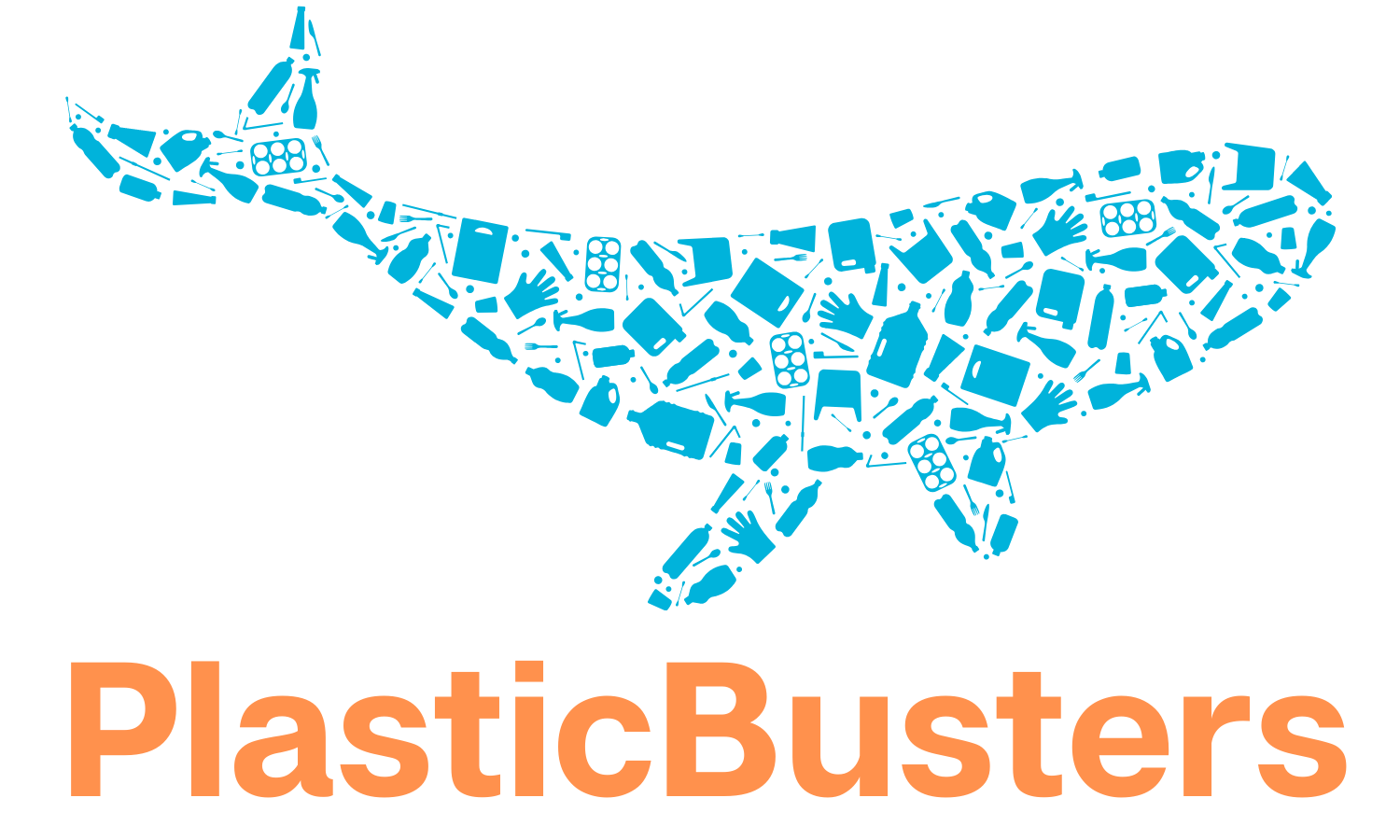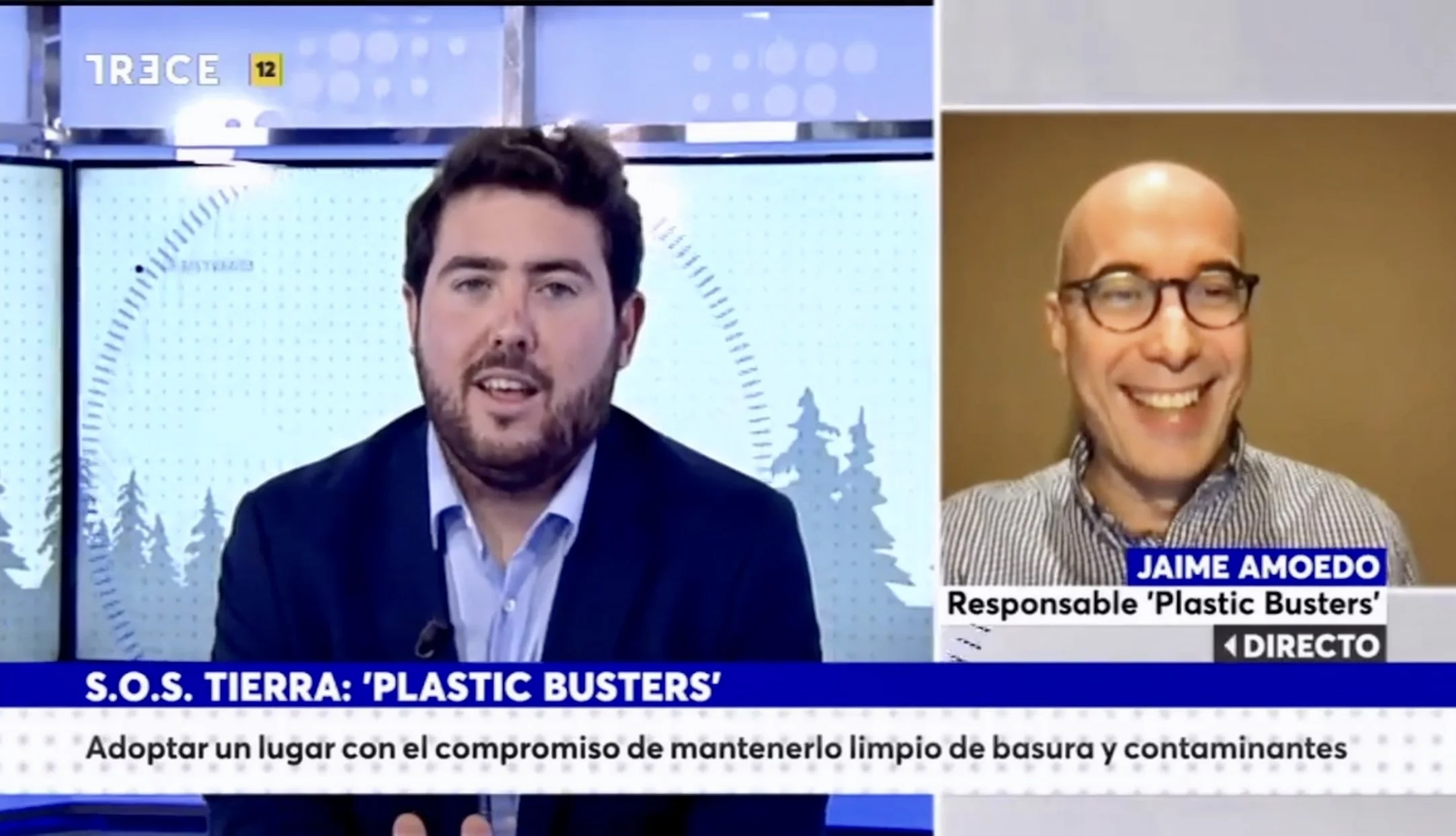Amoedo talks to Trece TV about AdoptTheWorld
Jaime Amoedo was interviewed on the Spanish national TV channel Trece on the 22nd of December to discuss about the award-winning AdoptTheWold initiative.
Since the video is in Spanish, we wanted to translate for you the contents of the interview:
Adrian: Adopting a place, be it a road, a beach, a forest… and committing to take care of it is now possible. Spaniards living in the Isle of Man have become a benchmark in caring for the environment with this project, with a Spanish seal, that at the moment has adopted more than 2,500 places in 105 countries. Inma, if you could adopt an area, which one would you adopt, the park next to your house, a beach, a forest?
Inma: I think a beach. To then go out for walks.. Make it clean and beautiful and then invite others to enjoy it as well.
Adrian: Well, let's see how the process works. We now greet the promoter of the project, Jaime Amoedo. Good evening.
Jaime: Hello, good evening Adrian, and thank you very much for inviting me to be with you today.
Adrian: How did this idea of adopting a place and committing ourselves to taking care of it come about?
Jaime: Well, look, the idea came up during the pandemic. A large part of our volunteers, worldwide, had been carrying out group activities, they made outings through the city, the countryside, or the beach on a regular basis and when the pandemic arrived, and with it the mobility restrictions and social distance requirements, they began to have difficulty or inability to continue doing so because group meetings were not allowed in most parts of the world.
It was then that our team came up with the idea of inviting people to adopt “a place”. Hence, we have called the initiative AdoptTheWorld. And we wanted to make it as easy as possible. We invite people to adopt a place that is close to them, such as the streets we walk by when going to work, the park where we take our children to play, the forest where we go jogging, the beach where we take our pet for a walk... And with total flexibility in terms of the time we want to dedicate to it, or the frequency with which we do it. There are volunteers who do it daily, others once a month...
Adrian: Jaime, it is a symbolic adoption, no, because one cannot say this area is mine...
Jaime: No, indeed. It consists of taking care of it. In two ways, one of them is to try to keep it clean, if you see that there is something you can pick up, then do it, just take a glove and a bag, and on the other hand if we see that there is something in our area that is dangerous, then report it to the local authorities.
Inma: Jaime, how are you? Good evening. I personally love the initiative, congratulations, but I was going to ask you about the interest it has raised.
Jaime: Well, the truth is that the reaction has been spectacular! You cannot imagine how much geography we are learning! We have places adopted in more than a hundred countries (105 to be exact), and well, incredible and exotic places such as the island of Balicasag in the Philippines (which I encourage listeners to look for it on the map because it makes you want to leave everything behind, and just go live there tomorrow), or the beach of Pallarenda in the Great Barrier Reef in Australia, or Puerto Ayora in the Galapagos Islands... But also of course much more inhospitable places like the city of Juneau in Alaska with temperatures as you can imagine pretty cool in winter, or the town of Oudane in the Mauritanian desert, with suffocating temperatures. And well, also places that are much better known, possibly to the public in Spain, such as the Plaza de la Independencia in Madrid, or the Parque Natural del Lago de Sanabria in Zamora.
A place that we has taken special affection is the small town of Blantire, in Malawi, one of the poorest countries in the world, where we have hundreds of volunteer children, and the reason why they have decided to collaborate is because plastic is already significantly affecting their crops and the quality of the water they drink.
Adrian: Jaime, we are going to reflect to see which area we adopt and we will let you know, ok?
Jaime: Of course, you are welcome to join!.
Adrian: Thank you very much and we are in contact.
Jaime: Thank you very much and good evening.
Spanish Version:
Adrian: Adoptar un lugar, ya sea una carretera, una playa, un bosque, y comprometerse a cuidarlo ahora es posible. Españoles que viven en Reino Unido se han convertido en todo un referente del cuidado del medio ambiente con este proyecto con sello español que por el momento ha dado en adopción mas de 2,500 lugares alrededor de 105 países.
Inma, de poder adoptar una zona, cual adoptarías, el parque de al lado de casa, una playa un bosque?
Inma: Yo creo que una playa. Para luego darme paseos. Dejarla bonita y luego invitar a la gente a que pasee también.
Adrian: Pues vamos a ver cómo es el procedimiento. Saludamos ya al impulsor del proyecto, Jaime Amoedo, buenas noches.
Jaime: Hola, muy buenas noches Adrian, y muchas gracias por invitarme a estar con vosotros hoy.
Adrian: Como surge esto de adoptar un lugar y comprometernos a cuidarlo?
Jaime: pues mira, la idea surgió durante de la pandemia. Gran parte de nuestros voluntarios, a nivel mundial, venían realizando actividades en grupo, hacían salidas por la ciudad, el campo, o la playa de manera regular y cuando llego la pandemia, y con ella las restricciones de movilidad y requisitos de distancia social, empezaron a tener dificultad o imposibilidad de continuar haciéndolo porque no se permitían reuniones de grupo en la mayor parte del mundo. Fue entonces cuando a nuestro equipo se le ocurrió la idea de invitar a la gente a adoptar “un lugar”. De ahí que a la iniciativa la hayamos llamado adopta el mundo. Y hemos querido hacerlo lo mas fácil posible. Invitamos a la gente a adoptar un lugar que les resulte cercano, como por ejemplo las calles por las que caminamos al ir a trabajar, el parque al que llevamos a nuestros hijos a jugar, el bosque por el que salimos a correr, la playa por la que paseamos a nuestra mascota… Y con total flexibilidad en cuanto al tiempo que le queremos dedicar o la frecuencia con la que lo hacemos. Hay voluntarios que lo hacen a diario, otros una vez al mes…
Adrian: Jaime, es una adopción simbólica no, porque uno no puede decir esta zona es mía…
Jaime: No, efectivamente. Consiste en cuidarla. De dos maneras, una de ellas es tratar de mantenerla limpia, si uno ve que hay algo que pueda recoger pues hacerlo, basta con llevar un guante y una bolsa, y por otro lado si vemos que hay por nuestra zona algo que es peligroso, pues reportarlo a las autoridades locales.
Inma: Jaime, que tal, buenas noches. A mi personalmente me encanta la iniciativa, enhorabuena, pero te iba a preguntar por la iniciativa que esta teniendo.
Jaime: Pues la verdad es que la que la reacción ha sido espectacular! No te puedes imaginar lo que estamos aprendiendo de geografía! Tenemos lugares adoptados en mas de cien países (105 para ser exactos), y bueno, lugares increíbles y exóticos como pueden ser la isla de Balicasag en Filipinas (que animo a los oyentes a que la busquen en el mapa porque da ganas de dejarlo todo e irse a vivir allí mañana, o la playa de pallarenda en la Gran Barrera de Coral en Australia, o Puerto Ayora en las Islas Galápagos…
También por supuesto lugares mucho mas inhóspitos como la ciudad de Juneau en Alaska con temperaturas como os podéis imaginar fresquitas en invierno, o el pueblo de Oudane en el desierto de Mauritania, con temperaturas asfixiantes. Y bueno, también sitios mucho mas conocidos posiblemente para los oyentes como pueden ser la plaza de la independencia en Madrid, o el Parque Natural del Lago de Sanabria en Zamora.
Y un sitio al que le hemos cogido especial cariño es al pueblecito de Blantire, en Malawi, uno de los países mas pobres del mundo donde tenemos centenares de niños voluntarios, y el motivo por el que han decidido colaborar es porque el plástico esta afectando ya de manera importante a sus cosechas y a la calidad del agua que beben.
Adrian: Jaime, nosotros vamos a reflexionar a ver que zona adoptamos y se lo decimos, trato?
Jaime: Desde luego, os invito a que lo hagáis.
Adrian: Muchas gracias y estamos en contacto.
Jaime: Muchas gracias y buenas noches.
Please follow this link if you would like to join the award-winning AdoptTheWorld initiative to adopt a place (a road, a beach, a park, a reef, an island, a forest… you name it!) and pledge to maintain it litter free.

